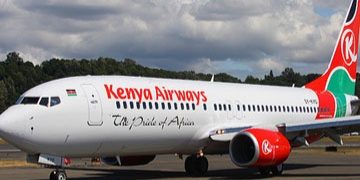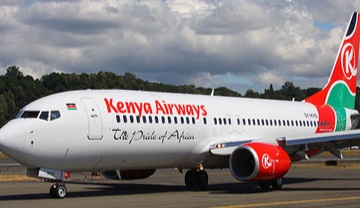By Enyichukwu Enemanna
An industrial court in Kenya on Tuesday ordered pilots of Kenya Airways to resume work on a date not later than November 9, a move which seeks to end an industrial action that has left thousands of passengers stranded.
Kenya Airline Pilots Association (KALPA) members, numbering about 400 pilots at the carrier, went on strike on Saturday after failing to resolve a dispute over their pensions contributions and settlement of deferred pay.
The Labour and Employment court judge ordered the pilots to resume their duties “unconditionally” at 6 a.m. local time (0300 GMT), on Wednesday.
The court also stopped the airline’s management from taking disciplinary actions against pilots who took part in the industrial action.
The court had restrained the union from embarking on the strike and the airline sought to cite the union’s officials for contempt of court after the strike started. The court will continue hearing the dispute, Judge Anne Mwaure said.
Kenya Airways welcomed the court’s directions, and said it would comply. Officials at the pilots’ union were not immediately available for comment.
The pilots’ walkout has so far cost the airline an estimated more than $2 million daily, affected more than 10,000 passengers and led to the cancellation of dozens of flights.
Kenya Airways, which is nearly 50% owned by the government, had earlier said it planned to cancel its bargaining and recognition agreements with the pilots union, saying their current strike was unlawful and amounted to economic sabotage.
The union is demanding the resumption of regular payments to its members’ pension plan, which were stopped in 2020 when the COVID-19 pandemic started, and the payment of pension arrears.
It also wants the carrier to start paying salaries that were deferred during the health crisis.
The airline’s management says it has been working hard to fully recover from the pandemic and accuses the pilots of jeopardising that push.
The financial turmoil at Kenya Airways preceded the pandemic.
The airline sank deep into the red after it borrowed heavily to buy new aircraft at a time when its passenger business slumped mainly due to frequent militant attacks in Kenya.




































